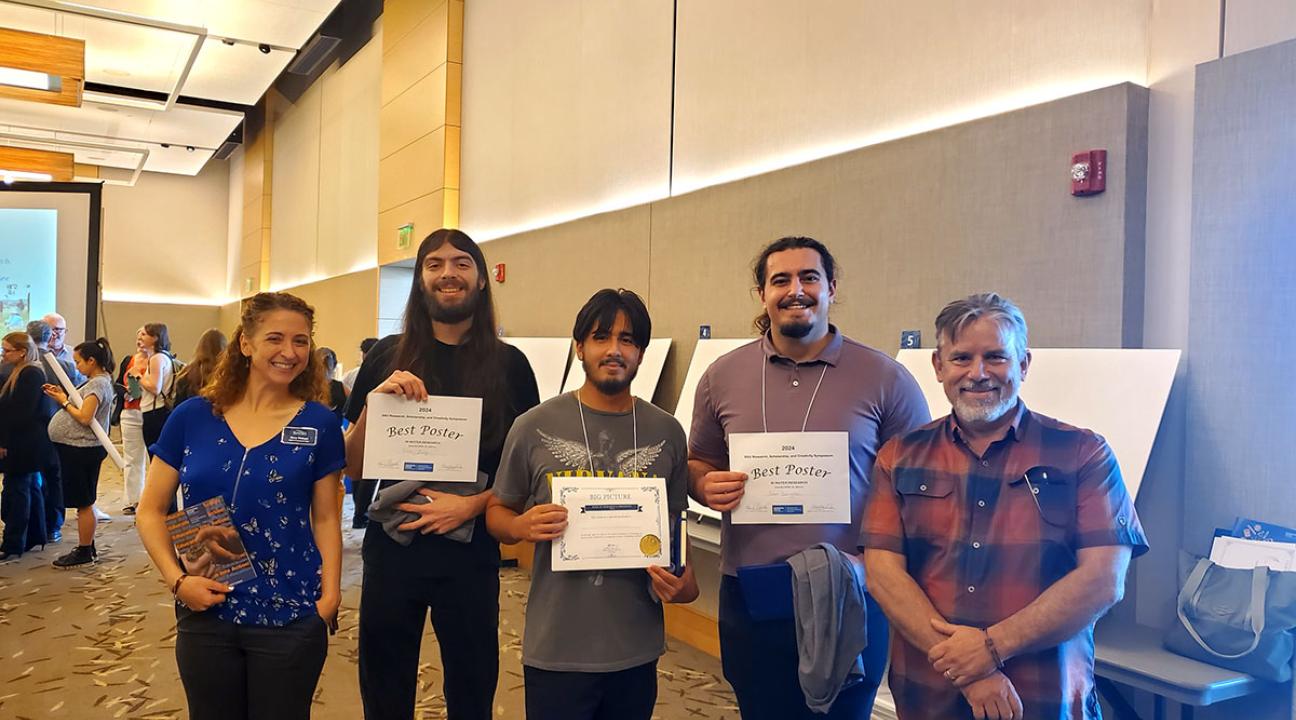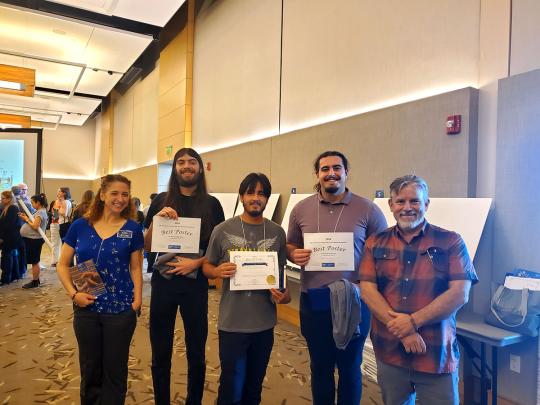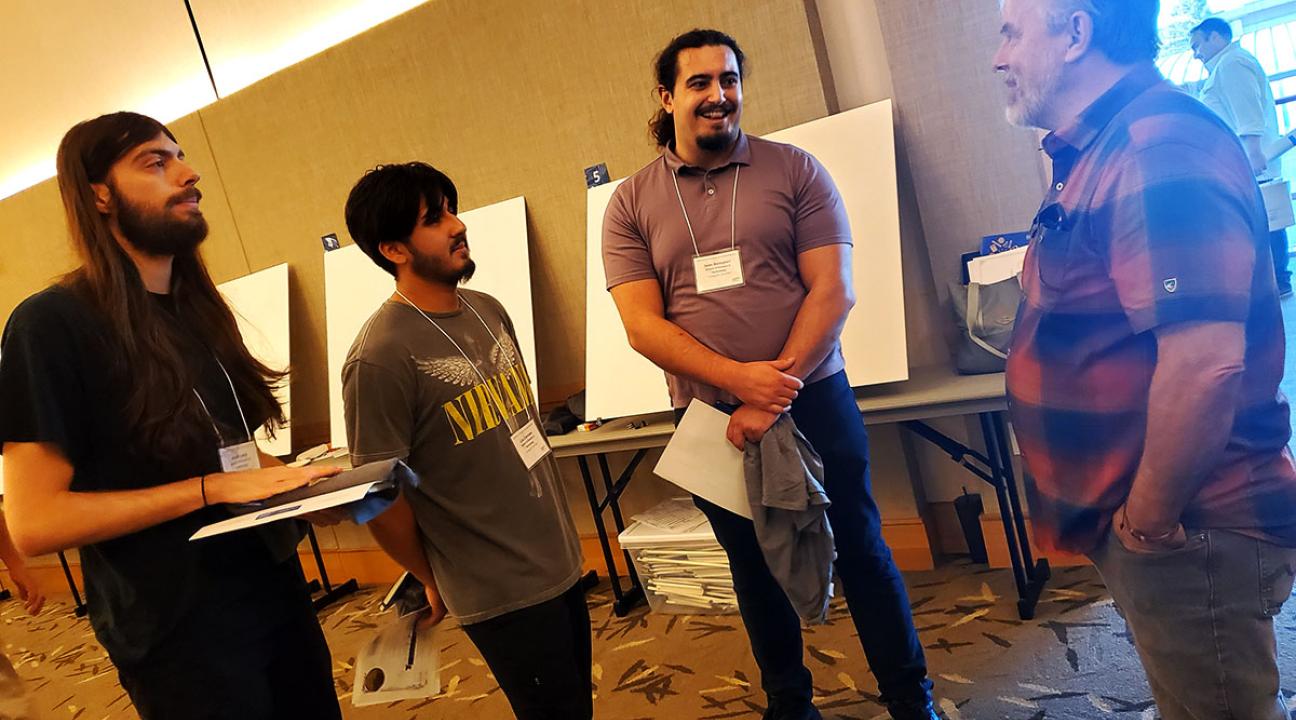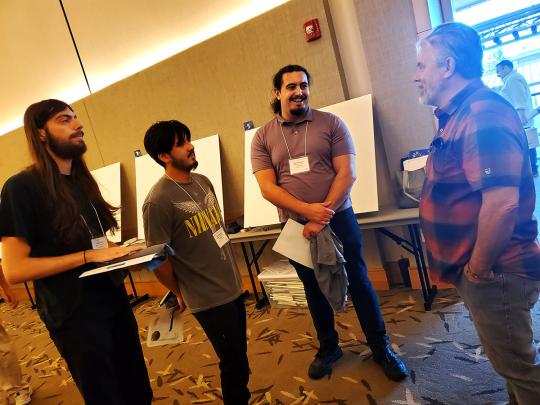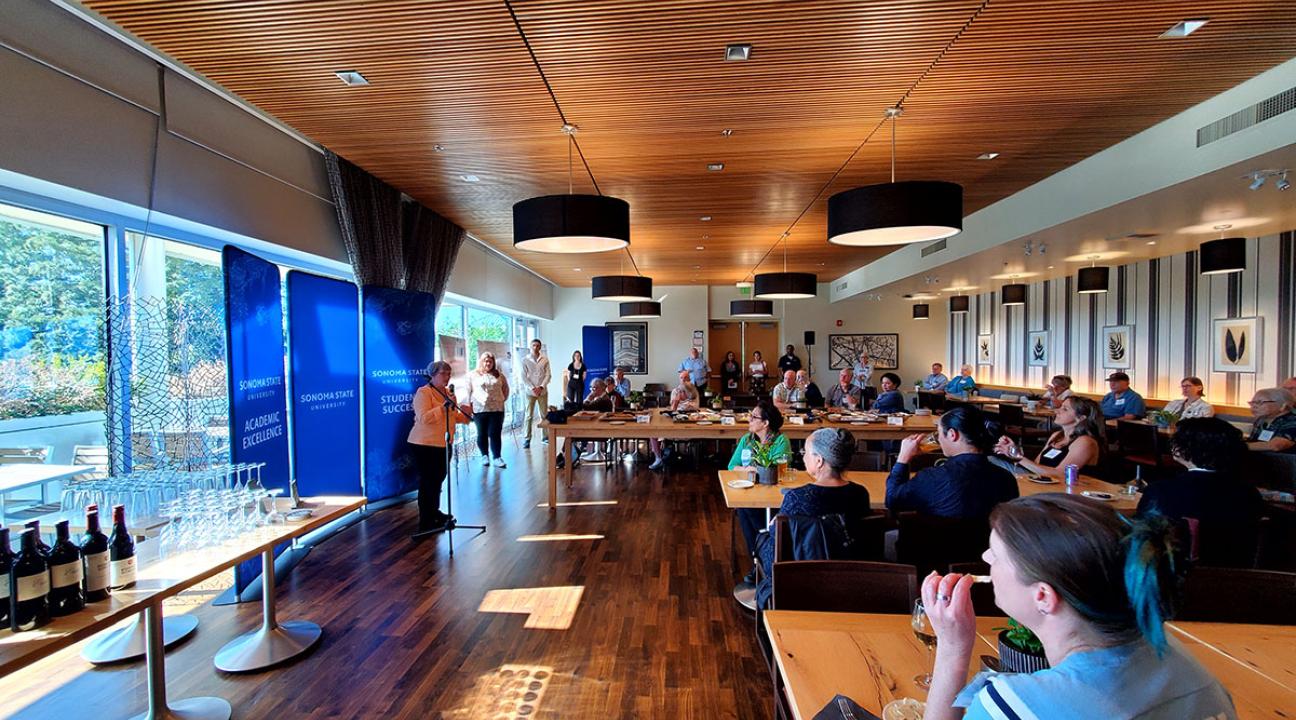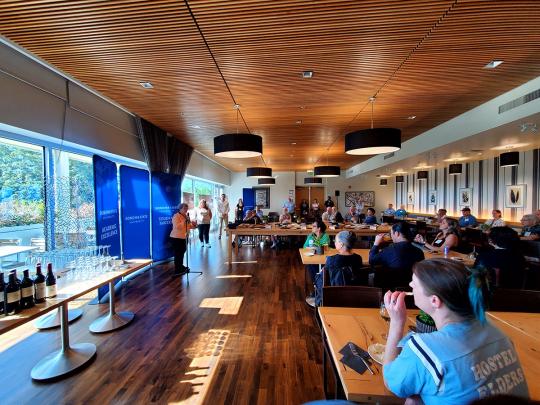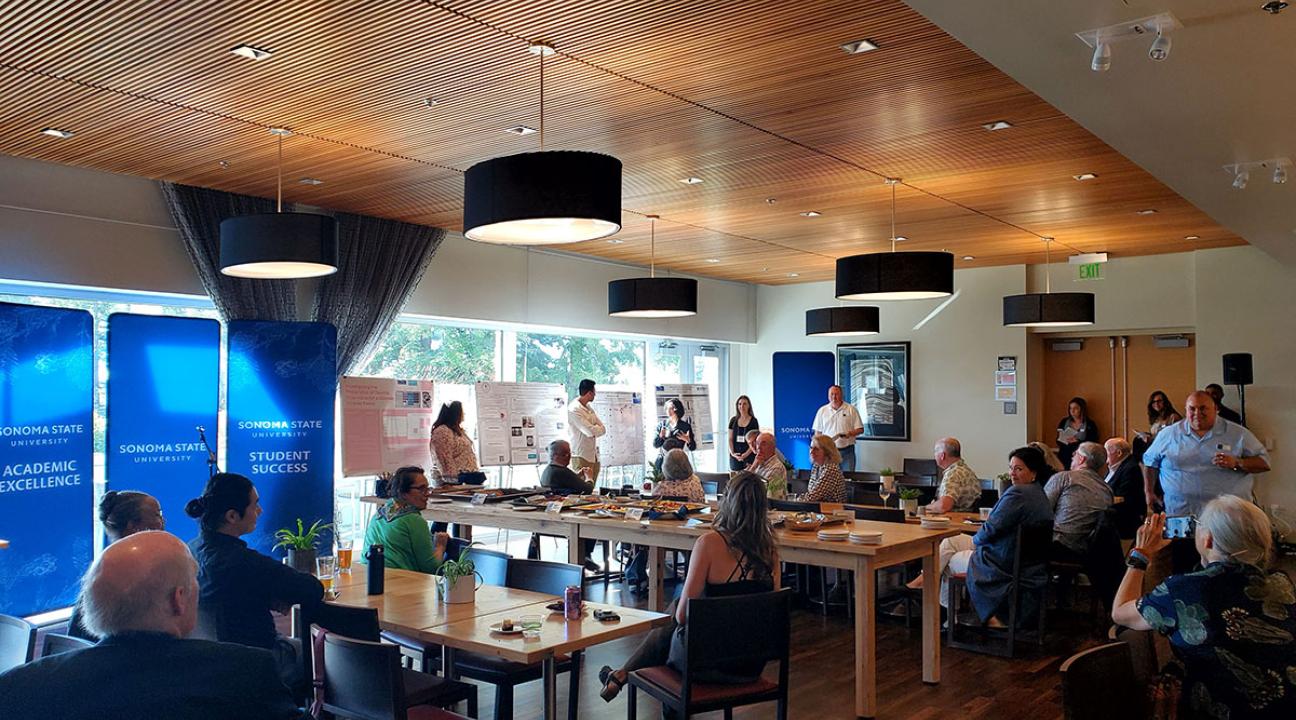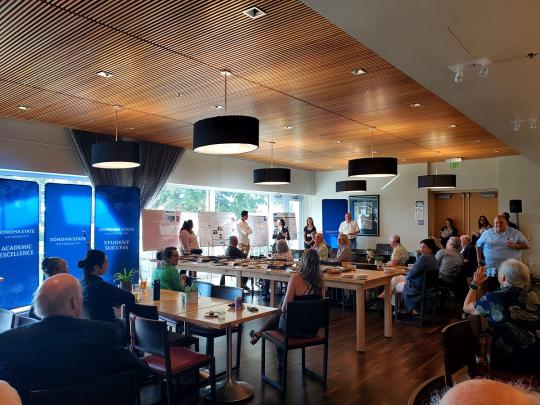AI Sustainability Project Wins Big at SSU’s 2024 Research, Scholarship & Creativity Symposium
he Center For Environmental Inquiry (CEI) congratulates Sonoma State students Sean Belingheri, Luis Carmona, Brody Lang, Ben Southard, and Skylar Winter for winning two top awards at the 2024 SSU Research, Scholarship & Creativity Symposium – Best Water Research Poster and Best Overall Research Poster.
Their project, AI & Water Sustainability in Large Language Models, explored the importance of establishing Sustainable AI, to ensure that resources such as water and electricity are used ethically, so that the growth of the AI industry does not put a strain on communities who also rely on these resources or lead to a broadening of “societal inequalities.”
The Center For Environmental Inquiry (CEI) congratulates Sonoma State students Sean Belingheri, Luis Carmona, Brody Lang, Ben Southard, and Skylar Winter for winning two top awards at the 2024 SSU Research, Scholarship & Creativity Symposium – Best Water Research Poster and Best Overall Research Poster.
Their project, AI & Water Sustainability in Large Language Models, explored the importance of establishing Sustainable AI, to ensure that resources such as water and electricity are used ethically, so that the growth of the AI industry does not put a strain on communities who also rely on these resources or lead to a broadening of “societal inequalities.”
“When looking at whether or not Sonoma county can support an AI-sized data center, the most important factor to consider is resource usage. Specifically, how much water and how much power needs to be available to the (AI) data center at all times,” wrote the researchers in their article. “Data centers, vital for AI operations, consume substantial amounts of energy and water, highlighting the fact that many communities struggle with managing these two resources efficiently. The substantial usage can potentially put strain on local resource management systems.”
Kerry Wininger, CEI’sOutreach & Project Development Lead, said students across departments and disciplines came together to grapple with an important issue.
“It's a great example of a cross-disciplinary project – students in Engineering and a faculty advisor in Philosophy working on an environmental issue,” Wininger said.
Andy Rodgers, Executive Director of the Russian River Watershed Association and a judge for Best Water Research Poster, said the students explored a topic that has not yet received much attention but that can have profound consequences for communities like Sonoma County.
“The overwhelming public attention AI has garnered throughout society has not in my recollection included environmental impact scrutiny,” Rodgers said. “It is a mind shift to consider cloud-driven technology, which conceptually paints a boundless picture in your head, to consider instead the actual place-based facilities and significant resource uses required to make these advances possible.”
Rodgers added that he was also excited to see students exhibit such passion for their work and be moved by scientific inquiry.
“Analyzing a natural resource water footprint for a topic like AI is immediately intriguing,” he said. “Then to listen to the project team enthusiastically expand on their findings exhibited authentic discovery that resulted from a profound experience of collective inquiry.”
The SSU Research, Scholarship & Creativity Symposium, funded in part by CEI’s WATERS Collaborative with Sonoma Water, gives students the opportunity to engage on environmental issues. It takes place every Spring at SSU.
Rodgers said CEI’s work and support are critical to ensure robust interdisciplinary inquiry and genuine collaboration toward solving environmental challenges.
“Organizations of all types nearly always talk about their genuine interest to engage with youth and educational institutions, and some do find ways. However, CEI has created a program that any organization can partner with to explore a series of questions from student teams that are genuinely neutral and open-minded, and that are guided by career researchers and educators,” Rodgers said. “Because the projects are real-world and immediately influential to outside partners in a semester context (and) because the students and teachers are exploring topics without preconception and institutional incentive, the outside partner gains fresh and unvarnished insights and potentially future influencers that may continue with the subject-matter journey.”
WATERS – Watershed Academics To Enhance Regional Sustainability – engages people from all backgrounds and disciplines in finding solutions to water challenges facing the North Bay. The WATERS Collaborative seeks to create a trained and local workforce of SSU graduates with knowledge and expertise in water management issues; increase and broaden SSU contributions to the development of water solutions; and enhance public awareness and understanding of water management issues and the value of academic-management collaborations.
The Center for Environmental Inquiry mobilizes faculty, students and community to solve environmental challenges of the North Bay. To get involved with CEI; learn more about our programs, classes, or projects; or to donate, contact Center Director Claudia Luke at [email protected] or visit cei.sonoma.edu.


